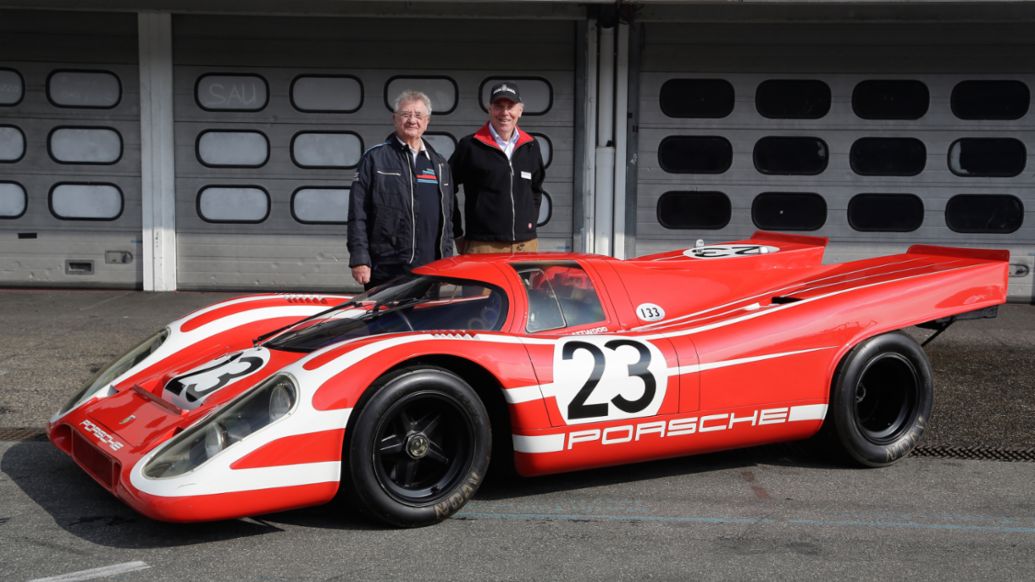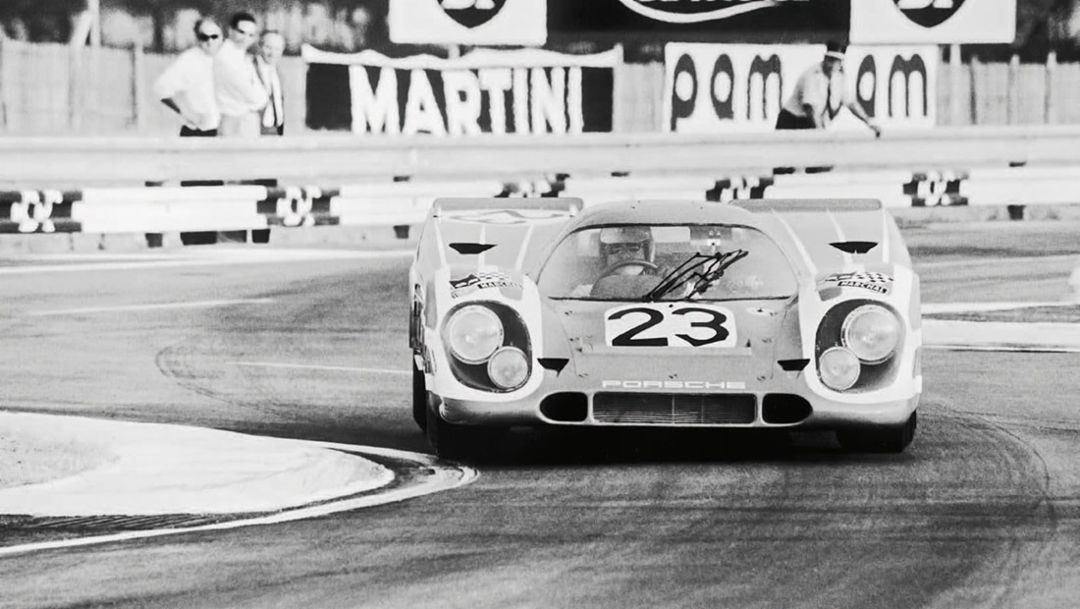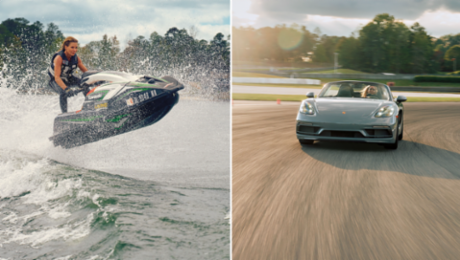A farewell after the Le Mans victory
Racing driver Hans Herrmann ended his career in 1970 after the first Porsche triumph at the legendary 24-hour race.

Not only did Hans Herrmann end his career in a Porsche (917 KH), he also started it in 1952 in his Porsche (356 A 1500) – as a private driver. Since then, there have been great advances in technology and safety in motor racing that benefit the driver. After all, Hans Herrmann and his colleagues reached top speeds of up to 384 km/h. And this is why fatal accidents were not uncommon back then, as 87-year old Herrmann remembers: “At the starting line you often used to think: who'll be the unlucky one today?”
Hans Herrmann envies drivers today who are able to avail of technical achievements in the areas of clothing and safety measures, but he is not envious of the many buttons in the cockpit. Back then, drivers had to rely on themselves on the racetrack – something that is inconceivable today. The pit determines the strategy, the driver is transparent and in constant contact with the pit crew. In the past, the team management didn't have a clue what the drivers were doing on the racetrack. “We had more influence and we didn't get any instructions. That wasn't technically possible at all. We had to judge everything ourselves and pace the race”, Herrmann says.
The drivers – just two per car back then – were completely left to their own devices. The final phase of the 24 Hours of Le Mans 1969 is a good example of this. Hans Herrmann from Stuttgart in a Porsche 908 long tail and Jacky Ickx from Belgium in a Ford GT40 were battling neck-and-neck for first place, Herrmann's brake pads at the front “were already worn down to the metal”. But he still didn't drive into the pit lane. “The decision was mine alone. I thought Jacky might run into trouble, too. That's why I stayed out,” Herrmann says. In the end Jacky Ickx won with a lead of around 100 metres.
A year later Herrmann took part in the last race of his career in the same place – Le Mans 1970 – and won together with the British driver Richard Attwood. It was the first of 16 Le Mans titles for Porsche. “Of course winning in Le Mans exactly a year after just missing first place meant a lot to me”, Herrmann says. Especially as it was his last race as a professional driver – this he had promised his wife before the start. “It was very moving that all these factors came together in 1970.”
It was not only on the racetrack but also in the preparations that the drivers were left to their own devices. There were no nutrition or training plans. Herrmann trained his reactions and quickness at the Stuttgart boxing club SV Prag. This is how Richard Attwood, Herrmann's co-pilot, describes the preparations: “We simply made sure that we were as fit as possible for the start of the race in order to do a good job.”
Herrmann did his job well for 18 years. He is the only German racing driver to win the four big classic races of his time: the 24 Hours of Daytona, the Twelve Hours of Sebring, the 1000 Kilometres of Paris and the 24 Hours of Le Mans.


